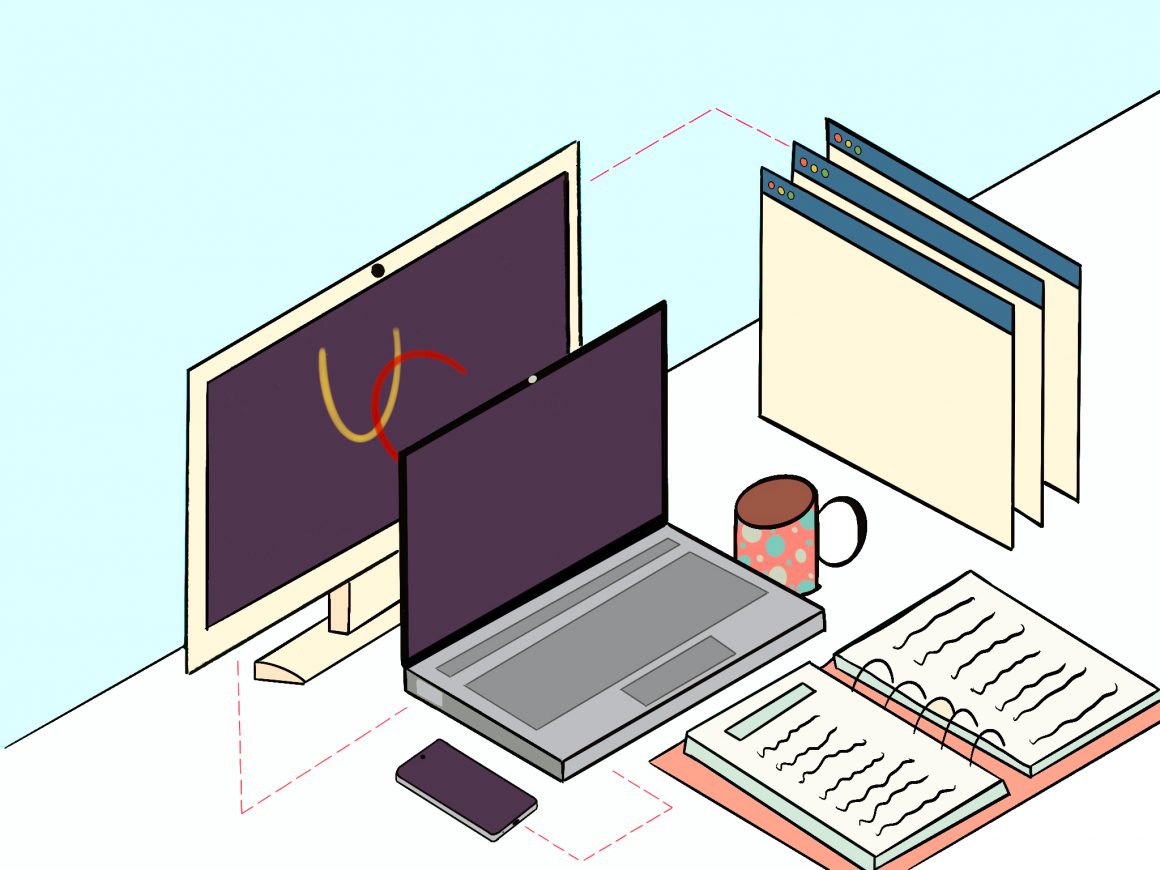
Students concerned about University of Calgary’s tech requirements for online courses
By Kristy Koehler, August 19 2020—
“What happened to not having barriers to education?” asked a Reddit user in a thread about the University of Calgary’s technology requirements for online coursework, posted on the r/UCalgary subreddit.
Kathleen Hughes, a professor in the Department of Psychology at U of C posted a screenshot of an email received from the Office of the Provost, detailing the requirements. While the requirements are available online, students posting on the thread expressed concern that they hadn’t been specifically consulted with or contacted about the information.
U of C’s website notes that “in order to successfully engage in their learning experiences at the University of Calgary, students taking online, remote and blended courses are required to have reliable access” to computers with the latest security and malware updates, current web browsers, webcams, microphones and speakers, stable internet connections and current antivirus and/or firewall software.
The website also notes that course outlines — many of which are not yet posted — will list specific technology required for each course. It goes on to say that “instructors may have additional technology requirements” and, if applicable, additional cost “would be listed as an approved mandatory supplementary fee and appear in your student centre.”
Not only did students express concern about access to technology at seemingly the last minute before classes are due to begin, but about the privacy concerns surrounding the use of webcams. The Gauntlet was also contacted by students concerned about these issues. Hughes noted, again on Reddit, that professors have been given the green light to make webcams mandatory.
U of C, in a statement provided to the Gauntlet, said that “students will not be required to have a webcam on at all times.”
“They can certainly turn their camera on and off when needed,” the statement continues. “There may be courses where webcams are needed to be on for certain learning activities (group work, presentations, lab work, studio work). Individual course instructors will let students know when they need access to the technology and how technology (like webcams) will be used.”
Frank Finley, Students’ Union president at U of C, advocated very strongly against the use of proctoring via webcam for exams and was successful in his efforts to ensure they will not be used for the Fall 2020 semester.
“For Fall, there will not be proctoring,” he said. “There have been so many questions that have not been answered about it. There are a number of legitimate privacy concerns around proctoring.”
He also noted that one of his most important considerations in coming out against webcam proctoring was its potentially disproportionate level of impact on students who have family obligations.
“If you’re in an exam proctored through webcam that uses a digital software to monitor so-called suspicious behaviour and you have a child in the background who moves around, that can be flagged as suspicious behaviour,” he said, also noting that, in his research, the academic evidence on the efficacy of webcam proctoring seemed to be mixed.
Students with family obligations also had some privacy concerns, worried that their children or family members may be inadvertently recorded in the background.
Finley says that students who do not have a webcam or an upgraded computer may “feel pressure to go out and actually buy something,” a situation he says is especially difficult this year.
“We already saw last year that there are so many students right on the edge of being able to afford their education,” he said. “Right now, there’s what I would call a significant amount of students who are considering not continuing on either because of cost or because of the current situation. I don’t think this is helpful in encouraging people to stay.”
Finley says the SU has put forward some technology-related asks through the Canadian Alliance of Student Associations. One of the most important among them is accelerated investment in rural high-speed internet access. On the provincial level, says Finley, the SU has asked for emergency financial support for students as well as a transition fund for institutions to help them navigate online teaching.
As for barriers to education that technology requirements create, Finley says that many students have, for the majority of their degree programs, relied on computers that are physically on campus.
“There are students who rely on public outlets and public WiFi as well and with the pandemic, when those options are not as readily available as they have been in the past, you’ve taken people who are already in a difficult situation and made it almost impossible for them now,” he said.
U of C, also in a statement to the Gauntlet, said that “study spaces on-campus will be opened to allow students to access stable wireless internet.”
Finley noted that the SU would continue advocacy efforts to ensure that students do not experience barriers to their education as they navigate resuming classes in the middle of a global pandemic. He also noted that he’s been disappointed by the lack of action on the part of the Ministry of Advanced Education.
“Time is ticking down. We’ve requested meetings and they have been slow to get back to us. If we hope to have a fruitful post-covid economic recovery we need to acknowledge that post-secondary institutions and students have a vital role to play in that.”
The University of Calgary’s website lists some financial resources that are available to students, specifically the Student Peer Assistance Bursaries, open to undergraduate students who are experiencing unexpected financial expenses associated with their education. The website also notes that all students have access to Microsoft 365 which includes anti-malware filtering.
